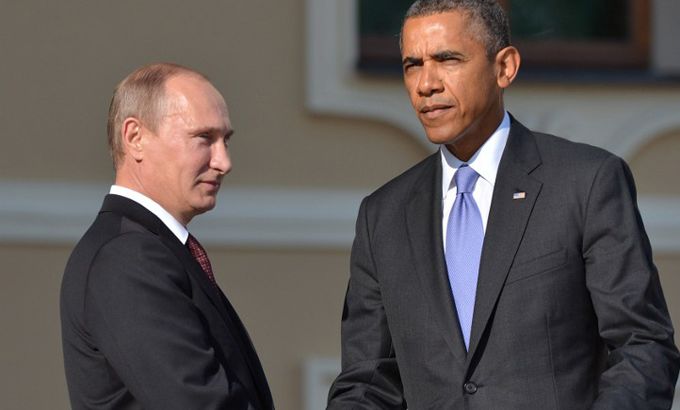G20 leaders remain divided over Syria action
Vladimir Putin leads opposition to possible US unilateral strike, as US envoy accuses Russia of holding UN hostage.

World leaders gathered at the G20 summit in the Russian city of St Petersburg have failed to settle their differences over the US push for military action against Syria in the wake of alleged chemical attack.
The first day of the summit on Thursday was overshadowed by the conflict, as President Barack Obama tried to garner international support for the military campaign amid Russian opposition.
“The G20 has just now finished the dinner session at which the divisions about Syria were confirmed,” Italian Prime Minister Enrico Letta, who attended the dinner, said in a comment on his official Twitter feed.
Russia, an ally of Syria, has led the opposition to US-led military action against the Syrian regime over a chemical attack on August 21 outside Damascus, which Washington says was perpetrated by the government forces.
In New York, the US Ambassador to the United Nations, Samantha Power, left no doubt that Washington had given up trying to work with the UN Security Council over the attack.
She said there was “no viable path forward in this Security Council” and accused Russia of holding it hostage.
Beyond convincing Russia, Obama has a tough sell ahead elsewhere. China – another veto-wielding Security Council member – has already expressed its “grave concerns” over unilateral military strikes.
A political solution is the only way to end the Syria crisis, a senior Chinese official said on Thursday, warning world powers to be “highly prudent”.
“War cannot solve the problem in Syria,” Chinese delegation spokesman Qin Gang told reporters at the G20.
The UN Secretary-General, Ban Ki-moon, later told the leaders at the summit that any military action must have the Security Council’s backing.
“Let us remember: every day that we lose is a day when scores of innocent civilians die,” his office quoted him as saying. “There is no military solution.”
Pope Francis added his voice to the calls for a peaceful solution, warning against the “futile pursuit of a military solution”.
German Chancellor Angela Merkel has repeatedly ruled out her country’s participation in any US-led military strike against Assad’s regime, while the British parliament has also rejected the idea.
EU president Herman van Rompuy said while the Damascus chemical attack was “a crime against humanity” there was “no military solution to the Syrian conflict”.
However, France has said it was ready to support US intervention.
Obama blames forces loyal to Syrian President Bashar al-Assad for the August 21 poison gas attack in the Damascus suburbs that killed up to 1,400 people.
US proofs
Moscow says Obama has not proven that claim and says rebel forces may have carried it out.
Putin’s press secretary, Dmitry Peskov said earlier in the day that they cannot accept US proofs of chemical weapon used in Syria. “They are far from being convincing” he said.
|
|
| Obama lobbies for congressional support on Syria |
Meanwhile, the British Prime Minister, David Cameron, said London had fresh evidence of chemical weapons use.
In a new bid for a peaceful solution for Syria, the UN announced that its special envoy Lakhdar Brahimi would attend meetings at the two-day summit to push for peace talks.
Russia meanwhile, said Syria’s Foreign Minister Walid Muallem would travel to Moscow on Monday, as Obama seeks to convince US lawmakers to approve military action.
Western military action against Syria had looked imminent last week, but Obama deferred the move and is seeking backing from Congress after a Senate panel backed his plans.
Now in its third year, the popular uprising against the Assad regime has cost more than 100,000 lives.